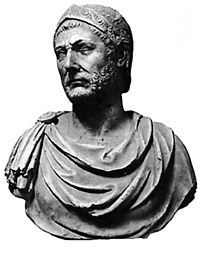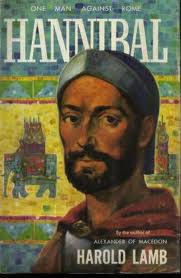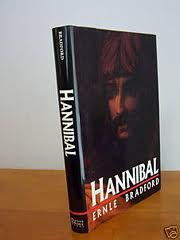Hannibal’s Words
I suppose a lot of writers are weird kids. I was, though I was enough of an introvert you couldn’t necessarily tell by looking just how weird. I was too worried about what people thought. I didn’t have enough social acumen to realize that part of the reason I wasn’t exactly popular might be the clothes I wore, or my lack of interest in sports, or my obsession with the original Star Trek, or the way I was always reading or playing D&D. Part of the problem was surely that I was just a skinny pale kid. With glasses. And braces. And freckles. And a sort of light bulb shaped head.
But this makes it seem like I feel sorry for myself, and the truth of the matter is that I had a fantastic childhood, with great and loyal friends and a loving and supportive family. I don’t think I’d change anything except a few poor decisions, and a few words I’ve since regretted. And I surely wouldn’t trade in my idols for the popular ones. Sure, I always dug The Beatles, and still do. And there are probably a lot of men my age who picked up cues from Kirk and Spock. (And no, I don’t mean how Kirk got to score with alien babes; I’m referring instead to compassionate leadership and standing up for the right thing, and always coming through for your friends and allies even at risk of your life or your career.) But my biggest idol was Hannibal of Carthage, and I’m sure I never met anyone else my age who thought he was as cool as I did. Or thought that he was cool at all. That was just weird.
It may be that The Silence of the Lambs is a great book and movie — it’s outside of my genres of interest, so I won’t be weighing in with my opinion — but the character of Hannibal the cannibal Lecter has made it impossible ever since to discuss Hannibal without adding “of Carthage” or even “he wasn’t a cannibal,” which is irritating.
History nerd that I was, I first learned about the real Hannibal from a book on Canaan by Isaac Asimov. The chapter was titled, intriguingly, “Enter Hannibal.” And boy, did he stride onto the world stage in a splashy way. I thought he was pretty interesting, enough so that I pulled down a library book all about him by some guy named Harold Lamb.
Wow, did I love that book (and the author, but that’s for another post). Hannibal was something of a superman, a Da Vinci of tactics. Unlike almost all other great generals, especially of antiquity, his was not a warfare motivated by the acquisition of territory. He set out to halt the Romans, who were poised to conquer not just his homeland’s colonies, but his homeland itself. A few generations after Hannibal’s death they did just that, going so far as to sell his city’s population into slavery and to ritually sow the ground with salt so that no crops could ever be grown there again. My friend and fellow writer James Enge says that the right people won that war, and I’ll admit that from what fragments we know of Carthage Rome sure seems like a better role model for our civilization. But that doesn’t change the fact that Hannibal was fighting to protect and preserve his nation. I think almost anyone can relate to and honor that sentiment.
If you want to read about Hannibal’s brilliant tactics, look up a discussion of Cannae, or Lake Trasimene. You’ll find lots of grand technical discussions about these and other battles he waged, defeating forces two or more times his own size. What you might not find is a discussion of countless other clever stratagems: for instance, the time he tricked the Romans into fighting an army of oxen, or the time he arranged for a delivery of Roman supplies to be sent to his troops, or how he got the Romans to recall their one effective commander in the field (Fabius) by laying waste to every farm for miles except those owned by Fabius. Later in life he devised snake bombs for naval warfare — gathering as many snakes as you could find in pottery jars and then hurling them onto the decks of your foes. If you can imagine a sudden explosion of slithering bodies in a narrow space you can probably imagine why the tactic worked.
The Romans hated him because he wouldn’t play fair. He refused to march out in straight lines and behave like you were supposed to do. He was a professional soldier in an age of amateurs, and to defeat him the Romans had to develop a professional soldier class of their own that would help lead to the dissolution of the Republic itself. Yet despite what the Romans claimed, he was a man of honor, and one beloved by his troops. One of the few eyewitness anecdotes we have of him comes from Plutarch, when Hannibal comes upon the body of Marcellus, a Roman general he respected. He honored the man with a moment of silence then held funeral rites for him and sent the cremated ashes to the general’s family.
After the war Hannibal rose to power in Carthage and enacted a series of sweeping reforms. The senators of Carthage had held lifetime rule: Hannibal changed that so they had to be elected every two years by the people in their districts. He eliminated vast layers of graft and corruption, enough that he was able to pay off the crippling fine imposed by Rome upon his city decades before it was expected. Unfortunately, he so angered the wealthy of Carthage with these antics that they sent a secret delegation to Rome claiming Hannibal was conspiring to build another army. Rome was all-too-ready to believe the tale, and from that moment until the end of his life Hannibal was hounded to more and more remote parts of the world, selling his services to those who wished to fight the expanding power of the Roman Republic. In the end, he somehow wrung a final victory from defeat. The Romans who stole upon his home did not capture him for a lengthy trial and public spectacle. They found only his body.
As a young man I thought his life one of the most noble and tragic stories I’d ever read, and I still do. Even though I’m older and realize that warfare is vicious and bloody, I still admire Hannibal of Carthage. So too did the Romans, in a way, because for centuries after parents would still warn their children that if they weren’t good, Hannibal would get them. Any primary sources about him are, unfortunately, lost (except for a couple of moments Plutarch seems to be quoting). The reason we still know so much about him is that Roman historians kept careful record of his deeds, for it was proof of great Roman spirit to have defeated so mighty a foe.
As you might expect, few of his actual words have come down to us. There are a few witty anecdotes which preserve his dry sense of humor, and a passionate speech he made before the Carthaginian senate to accept the terms of defeat while chiding them that only now, too late, do they wish to fight. And then there is one phrase that has stayed with me. I wonder if he thought it when he contemplated taking his army across mountains allegedly impassable, or when he faced armies twice his size, or when he found a way to keep his army supplied and loyal in a land of his enemies. He is reputed once to have remarked: “I shall find a way, or make one.”
It’s a simple line. But when you’re familiar with all that Hannibal achieved against incredible odds, it’s inspiring. Those words, and his very character, continue to inspire me today.



16 Comments